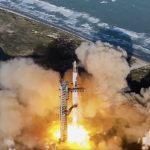Photo by BRENDAN SMIALOWSKI/AFP via Getty Images
- Officials from the White House coronavirus task force and Operation Warp Speed are encouraging states to hand out the coronavirus vaccine on a first-come, first-served basis to ensure that the doses won’t go to waste, The Daily Beast reported Tuesday.
- Issues with the vaccine rollout have sprung up across the country, including supply chain issues and some healthcare and frontline workers refusing to receive their vaccinations.
- The vaccine rollout has been far slower than previously anticipated. President Donald Trump had said there would be 100 million doses of the vaccine for Americans by the end of 2020.
- This goal was later lowered to 20 million by January 1, Human Services Secretary Alex Azar said in December.
- On December 31, 2020, only 2.8 million Americans have received COVID-19 vaccines.
- Visit Business Insider’s homepage for more stories.
Senior officials from the White House coronavirus task force and Operation Warp Speed are urging states to give out extra doses of the coronavirus vaccine to anyone who wants it, The Daily Beast reported Tuesday.
Four people familiar with the matter told The Daily Beast that federal officials are already informing states to hand out excess doses on a first-come, first-served basis to ensure that the vaccines will be used before they expire.
Administering the vaccines in such a manner would contrast the months of planning and strategizing that went into the distribution of the highly-anticipated vaccine, where frontline healthcare workers and long-term care workers and residents are prioritized to receive it.
The vaccine rollout has been far slower than what the Trump administration had hoped. President Donald Trump had said earlier last year there would be 100 million doses of the vaccine for Americans by the end of 2020, and Human Services Secretary Alex Azar later said last December that at least 20 million people would be vaccinated by January 1.
On December 31, 2020, only 2.8 million Americans have received COVID-19 vaccines.
Issues with vaccine distribution have sprung up across the nation. Some healthcare and frontline workers failed to show up for their vaccinations or refused to receive them, leaving excess doses of the vaccine to expire on refrigerator shelves. At one hospital in Riverside County in California, about half of the staff are declining to receive the vaccine, the Los Angeles Times reported.
Apart from those who choose not to have the vaccine, federal officials are also worried about supply chain issues slowing down the distribution of the vaccine.
“If we have a big surge in cases and deaths after the December holidays and we don’t have the vaccine distribution plan back on course we’re in big trouble,” one senior administration official told The Beast.
Powered by WPeMatico






